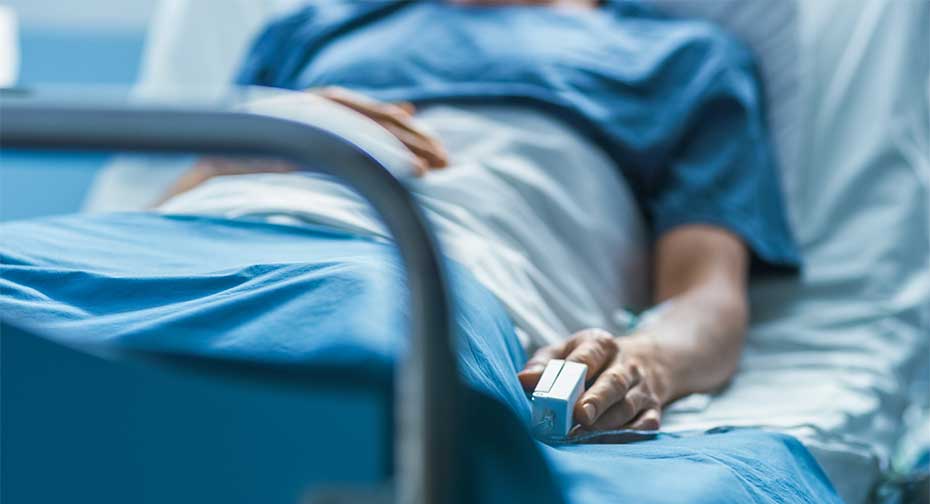In the United States, 1 in 9 hospitalized patients has a history of drug addiction (also called substance use disorder).
Unfortunately, most doctors and nurses don’t know how to treat this disease. That’s why addiction recovery advocates are urging hospitals to staff people who specialize in addiction medicine.
How Hospitals Fail Addiction Recovery
When a person with addiction enters a hospital for a separate health issue, they won’t be able to use drugs during their stay. As a result, they will often develop withdrawal symptoms.
These symptoms vary depending on the person and the drugs they used. The most common symptoms include:
- drug cravings
- nausea and vomiting
- sweating
- shaking
- seizures
- anxiety
- depression
- hallucinations
When left untreated, these symptoms cause extreme discomfort. Some of them can even be life-threatening.
Stigma
Even so, many hospitalized patients don’t tell their doctors about their withdrawal symptoms and addictions. This is often because they fear judgment.
Indeed, many doctors and nurses still view addiction as a moral failing rather than a disease. They may even use stigmatizing language such as “addict” or “junkie.” This language can make patients feel shamed instead of supported.
Inadequate Care
Also, even when patients do disclose their addictions, they rarely receive adequate care.
In most cases, they are given a list of local detox programs and discharged. They must then figure out their treatment plans on their own, often while experiencing severe withdrawal symptoms. That’s why most of them relapse (start using drugs again).
Relapse often leads to overdose.
Risk Of Overdose After Discharge
In fact, studies show that people with addiction face an increased risk of deadly overdose in the days or weeks after getting discharged from a hospital. In 2021, more than 100,000 Americans died of drug overdoses, the highest rate ever recorded.
Hospitals can help patients avoid overdose and other health issues by staffing addiction medicine specialists.
How Hospitals Can Use Addiction Medicine To Help Patients
Addiction medicine is a medical subspecialty that focuses on diagnosing and treating people who live with addiction. It was officially recognized by the American Board of Medical Specialties (ABMS) in 2016.
To help patients recover from addiction, hospitals should staff people who specialize in different types of addiction medicine, including medication-assisted treatment, behavioral therapy, and peer recovery support.
Medication-Assisted Treatment
In medication-assisted treatment (MAT), patients receive medications that help treat opioid and alcohol addiction. The medications most commonly used in MAT include:
- acamprosate, which reduces alcohol cravings
- buprenorphine, which reduces opioid cravings
- methadone, which reduces opioid cravings and withdrawal symptoms
- disulfiram, which discourages alcohol use by causing headache, nausea, and other unpleasant side effects when you drink alcohol
- naltrexone, which blocks the pleasant effects of alcohol and opioids
According to the Substance Abuse and Mental Health Services Administration (SAMHSA), MAT helps people stay engaged in treatment. It also lowers their risk of overdose, criminal activity, and infectious diseases such as HIV and hepatitis C.
By providing MAT, hospitals can significantly improve a patient’s chances of long-term recovery.
Behavioral Therapy
In behavioral therapy, patients learn how to change unhealthy behaviors and beliefs that contribute to their drug misuse. They also develop coping skills to manage drug cravings.
Some of the most common coping skills include journaling, meditating, and spending time with supportive loved ones.
In addition, the therapist can help the patient cope with any co-occurring mental health concerns, such as anxiety, depression, and bipolar disorder. They can also refer the patient to a dual diagnosis treatment program.
Available on an inpatient or outpatient basis, dual diagnosis treatment addresses addiction that occurs alongside other mental health conditions.
Peer Recovery Support
People with addiction often feel misunderstood, especially in hospitals where much of the staff lacks knowledge about the disease. That’s where peer recovery coaches come in.
These individuals have recovered from addiction themselves, which means they can offer patients much-needed empathy and understanding.
They can also teach the doctors and nurses about the patient’s addiction, enabling them to provide better care.
Additionally, recovery coaches can help the patient design their own recovery plan using evidence-based treatments and coping skills. This plan will reflect the patient’s unique needs and goals. It may include strategies such as:
- ongoing outpatient treatment
- support groups
- wellness activities, such as exercise, yoga, and meditation
- assistance with housing, education, or employment
Like medication-assisted treatment, these strategies can reduce the patient’s risk of relapse. Also, if the patient does relapse, the peer recovery coach can help them get additional or modified treatment.
If you or someone you love struggles with addiction, please reach out to Northeast Addictions Treatment Center. Our compassionate treatment providers offer behavioral therapy, medication-assisted treatment, and other evidence-based services to help you or your loved one thrive.
Keep Reading
Sources
Annals of Emergency Medicine — One Year Mortality of Patients after Emergency Department Treatment for Nonfatal Opioid Overdose
Centers for Disease Control and Prevention — Drug Overdose Deaths in the U.S. Top 100,000 Annually
Journal of General Internal Medicine — National Prevalence of Alcohol and Other Substance Use Disorders Among Emergency Department Visits and Hospitalizations: NHAMCS 2014-2018
Journal of Hospital Medicine — A Call to Action: Hospitalists’ Role in Addressing Substance Use Disorder
Substance Abuse and Mental Health Services Administration — Medication-Assisted Treatment (MAT)


